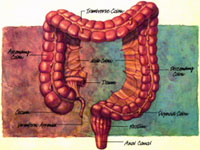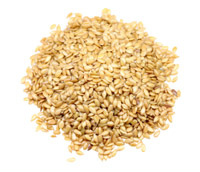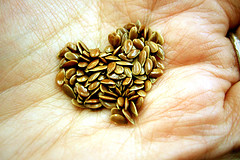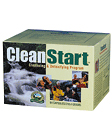| Share |  |
 | |||
Clear The Way For a Clean Start
 With the holiday feasting over, the beginning of a new year is an opportune time for a cleansing to improve your health. Our systems were not made to run on refined flours and sugars or processed chemical-laden food. Periodic internal cleansing and detoxifying helps clear the channels of accumulated waste and metabolic debris. The efficient elimination of undigested food and other waste products is equally important to good health as is the proper digestion and assimilation of food. However, the body cannot fully benefit from a detoxification and cleansing program if the primary organ of elimination, the colon (large intestine) has become sluggish or blocked in any way. Toxins, broken down by the liver and excreted to the bile for elimination through the intestines must have a clean pathway out of the body or they will end up being reabsorbed, causing a host of other problems.
With the holiday feasting over, the beginning of a new year is an opportune time for a cleansing to improve your health. Our systems were not made to run on refined flours and sugars or processed chemical-laden food. Periodic internal cleansing and detoxifying helps clear the channels of accumulated waste and metabolic debris. The efficient elimination of undigested food and other waste products is equally important to good health as is the proper digestion and assimilation of food. However, the body cannot fully benefit from a detoxification and cleansing program if the primary organ of elimination, the colon (large intestine) has become sluggish or blocked in any way. Toxins, broken down by the liver and excreted to the bile for elimination through the intestines must have a clean pathway out of the body or they will end up being reabsorbed, causing a host of other problems.
 Typically, women place much attention on cleanliness, whether it be their house or their outward appearance. But are our bodies clean inside? The cleanliness of any tissue or organ in the body is dependent upon the cleanliness of the colon. Therefore, it is essential in any lasting healing program to first cleanse the colon. The colon is the first structure developed in the fetus and is considered the most important organ in the body. It is the best indicator of the condition of a person's body, whether it is healthy or not. A clean colon is the best health insurance we can have and disease cannot be prevented or reversed when it is clogged or dysfunctional in any way.
Typically, women place much attention on cleanliness, whether it be their house or their outward appearance. But are our bodies clean inside? The cleanliness of any tissue or organ in the body is dependent upon the cleanliness of the colon. Therefore, it is essential in any lasting healing program to first cleanse the colon. The colon is the first structure developed in the fetus and is considered the most important organ in the body. It is the best indicator of the condition of a person's body, whether it is healthy or not. A clean colon is the best health insurance we can have and disease cannot be prevented or reversed when it is clogged or dysfunctional in any way.
The Underlying Cause of Disease
A person's colon can be compared to a waste disposal unit or sewer system. If a sewer system were to back up in our homes or our streets, it would cause unimaginable problems. Our "internal sewer system" can become a cesspool of decomposing material inviting an invasion of fungus, toxic bacteria, viruses and parasites to survive on its waste. It has been said, "all disease begins in the colon." The underlying cause of disease and degeneration in the body is often backed-up metabolic waste that literally blocks the organs' ability to function properly. The good news is that, when the blockage is removed and toxins are efficiently eliminated daily, the body is then able to heal itself.Statistics show that more North Americans are hospitalized due to diseases of the intestinal tract than from any other group of disorders. Along with a host of diseases and conditions indirectly related to colon health, people often suffer common conditions like hemorrhoids, diverticulitis, irritable bowel syndrome, ulcerative colitis, Crohn's disease and colon/rectal cancer which are directly linked to the health of the colon. According to the American Cancer Society, colorectal cancer is the second leading cause of cancer-related deaths in men and women combined.
An Overload of Toxins
One of the primary causes of these epidemic proportions is the high degree of toxins to which our bodies are subjected. Never before have we lived in such a toxic environment or consumed so many chemicals in our food and drink supply. There are approximately eighty thousand chemicals used in this country in food, prescription drugs, household products, lawn care products, personal products, etc. with an additional two thousand more added each year, many of which are carcinogenic and others which remain untested. Since all of these toxins in our environment find their way into our bodies, the need to detoxify and cleanse the body has never been greater. Toxins are produced inside the body as well through metabolic waste from microbes like bacteria, yeasts, and parasites as well as through normal metabolic functions. Every organ and cell can be likened to a little metabolic engine that runs on fuel (nutrition), and produces exhaust emissions (waste) as it does its job. Our bodies, just like a car, develop waste and sludge internally and are also in need of periodic oil and filter changes, radiator flushes, transmission fluid changes, which is what detoxification and cleansing is all about.Sluggishness Creates Serious Problems
One major cause of a sluggish colon in the average American is the over consumption of refined carbohydrates and devitalized processed foods lacking fiber and bulk. Without sufficient fiber to act as an "intestinal broom," wastes from refined foods fill the "pockets" and coat the inner walls of the colon. Layer by layer, this coating gradually increases in thickness, clogging the "pipe," so to speak, and slowing down the transit time of waste elimination. Elimination should occur 16-24 hours after each meal eaten, but the average American takes 72-96 hours, meaning they are 10-15 meals behind in getting rid of toxic waste from the food they eat which, over time, can result in as much as 15-30 pounds of built up impacted waste. Studies show that rural Africans, who eat diets high in fiber and low in refined processed foods, eliminate food waste in one-third the time it takes people from urban westernized cultures.
 As stagnant toxic waste lingers in the colon, it ferments, rots and becomes a breeding ground for the proliferation of pathogenic bacteria, viruses, parasites and fungus. These disease-producing organisms, along with toxic food by-products can be absorbed through the bowel wall and make their way into the bloodstream where they are carried to every part of the body, deposited into the tissues and, in some cases, stored in places such as fat cells and joints. This self-poisoning process, which slowly wears down the vitality and health of body tissues and organs, is known as "autointoxication" - the end result of neglecting to keep the colon clean. This retention and reabsorption of toxic waste is the real cause behind much sickness and disease. A wide range of symptoms such headaches, arthritis, allergies, bad breath, fatigue, pains, coughs, gastrointestinal disorders, immune weakness and many skin problems, can all be related to toxicity.
As stagnant toxic waste lingers in the colon, it ferments, rots and becomes a breeding ground for the proliferation of pathogenic bacteria, viruses, parasites and fungus. These disease-producing organisms, along with toxic food by-products can be absorbed through the bowel wall and make their way into the bloodstream where they are carried to every part of the body, deposited into the tissues and, in some cases, stored in places such as fat cells and joints. This self-poisoning process, which slowly wears down the vitality and health of body tissues and organs, is known as "autointoxication" - the end result of neglecting to keep the colon clean. This retention and reabsorption of toxic waste is the real cause behind much sickness and disease. A wide range of symptoms such headaches, arthritis, allergies, bad breath, fatigue, pains, coughs, gastrointestinal disorders, immune weakness and many skin problems, can all be related to toxicity.
Preventative Advantages of Fiber
 Fiber promotes wavelike contractions that keep food moving through the intestine, binding toxins and quickly eliminating them from the colon. People in countries who eat more unprocessed, high-fiber foods also have fewer incidences of colon and other cancers. On the other hand, people who eat less high-fiber foods have more incidences of cancers. The reason may be that cancer-causing agents remain in contact with the colon wall for a longer period of time and in higher concentrations when transit time is slowed. But with greater bulk from fiber, harmful substances are swept out before they can cause problems resulting in fewer colon polyps and less cancer. Also, high-fiber foods expand the inside walls of the colon and add bulk to stools which eases passage of waste, helping to prevent common intestinal tract conditions such as constipation, hemorrhoids, irritable bowel syndrome and Diverticulosis.
Fiber promotes wavelike contractions that keep food moving through the intestine, binding toxins and quickly eliminating them from the colon. People in countries who eat more unprocessed, high-fiber foods also have fewer incidences of colon and other cancers. On the other hand, people who eat less high-fiber foods have more incidences of cancers. The reason may be that cancer-causing agents remain in contact with the colon wall for a longer period of time and in higher concentrations when transit time is slowed. But with greater bulk from fiber, harmful substances are swept out before they can cause problems resulting in fewer colon polyps and less cancer. Also, high-fiber foods expand the inside walls of the colon and add bulk to stools which eases passage of waste, helping to prevent common intestinal tract conditions such as constipation, hemorrhoids, irritable bowel syndrome and Diverticulosis.
Increased fiber contributes to more than just colon health. Soluble fiber found in beans, oats, flaxseed and oat bran can lower LDL (low-density lipoprotein), or "bad," cholesterol levels as well as absorbing triglycerides and other particles in the blood that contribute to the development of heart disease. Adding fiber to the diet regulates blood sugar levels by slowing the absorption of sugar, an important factor in avoiding Type-2 diabetes. High-fiber foods also aid in weight loss since they stay in the stomach longer, slowing down the rate of digestion and creating a sensation of fullness; thereby decreasing the tendency to overeat. In addition, fiber moves fat through the digestive system faster so that less of it is absorbed.
Do We Get Enough?
The average American consumes 8-11 grams of fiber daily though 25-35 grams is what the medical associations recommend. In order to have ample fiber, diets should include plenty of raw fruits, raw vegetables, whole grains, beans, legumes and seeds. Many foods such as oat, oat brans, psyllium husk and flax seed are rich in both insoluble and soluble fiber. A tablespoon of freshly ground flaxseed sprinkled on food or in a smoothie is an excellent way to get high quality fiber along with the benefits of Omega 3 fatty acids. Fiber supplement powders containing such things as psyllium, oat bran or apple pectin may be taken in juice or water first thing in the morning, at bedtime or even before meals to help reduce appetite.Fiber is Activated by Water
Since fiber is activated by water, it is vital to drink plenty of extra water when increasing fiber in order to avoid constipation. Virtually all constipation and resulting health issues would be eliminated if people were to have sufficient water and fiber intake. But what does the average American do when they have constipation? They go out and get one of hundreds of laxatives that, not only can be habit forming, but also eventually destroy the ability of the bowel to eliminate naturally. Such artificial stimulation of the bowel tires the muscle out from it constantly working causing it to lose tone and be weakened.Colon Cleansing Recommendations
 There are many herbal and other types of colon cleansing products and programs available to stimulate and strengthen the colon's natural muscle action as well as remove accumulated wastes and toxins. Many have two-step formulations; the first generally contains herbs such as aloe, senna leaf, cascara sagrada that serve to naturally increase the propulsive contractions of the colon muscle. The second generally includes ingredients such as psyllium seed, flax seed and marshmallow root to soften and break up hardened layers of impacted waste along with powerful and effective absorbers and neutralizers such as bentonite clay, activated willow charcoal and pectin to draw out and absorb harmful chemicals, heavy metals and other toxins. It is recommended that a colon cleansing be done seasonally for maximum colon health and that the use of fiber be continued for the maintenance of a clean colon.
There are many herbal and other types of colon cleansing products and programs available to stimulate and strengthen the colon's natural muscle action as well as remove accumulated wastes and toxins. Many have two-step formulations; the first generally contains herbs such as aloe, senna leaf, cascara sagrada that serve to naturally increase the propulsive contractions of the colon muscle. The second generally includes ingredients such as psyllium seed, flax seed and marshmallow root to soften and break up hardened layers of impacted waste along with powerful and effective absorbers and neutralizers such as bentonite clay, activated willow charcoal and pectin to draw out and absorb harmful chemicals, heavy metals and other toxins. It is recommended that a colon cleansing be done seasonally for maximum colon health and that the use of fiber be continued for the maintenance of a clean colon.
For further information on the many other aspects to cleansing and detoxifying the body that are beyond the scope of this article, I would recommend Dr. Don Colbert's book entitled Toxic Relief as well as Coming Clean - Your Guide to Detoxifying the Body by Steven Horne.
For questions, comments, or colon cleansing product recommendations, please contact: Lucinda.Bedogne@myfriendDebbie.com
Copyright © 2008-2015 Lucinda Bedogne, CNHP, CNC
Reader Comments...
| 2009-01-19 20:07:41 "Enjoyed your article, Lucinda. Very informative and helpful. Thanks." - Denise |
| 2009-01-16 08:06:00 "Nice job Lucinda!!!" - Janet |
Post Your Comment...
|
|
||||||||||||


